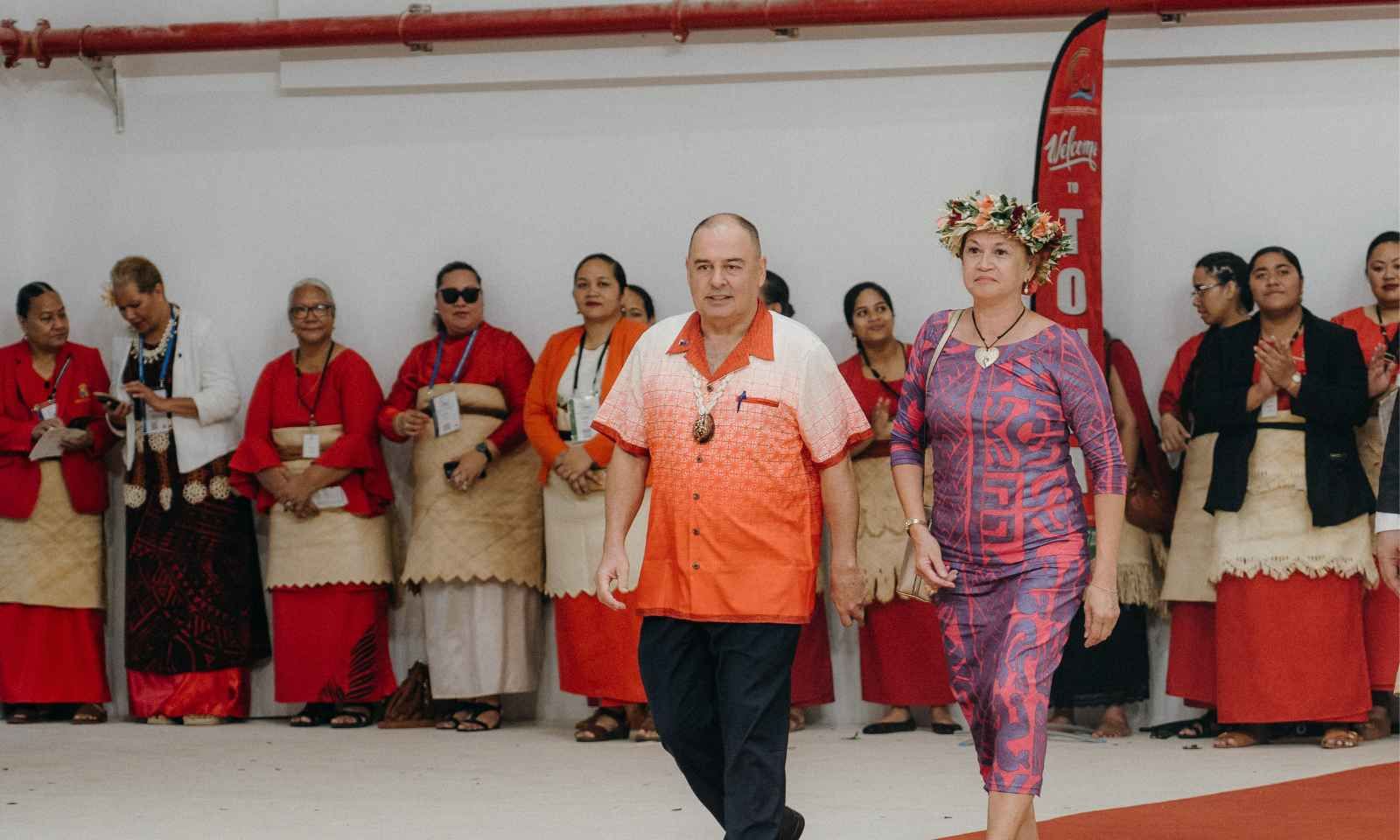

Henk Rogers worked with the inventor of Tetris, Alexey Pajitnov, by forming a partnership after securing the Game Boy rights for the game.
Photo/ Ala Vailala
Deep-sea mining could be a costly mistake - advocate
Henk Rogers warns island nations against deep-sea mining, advocating for renewable energy solutions instead.



Inked across lands: How Pacific tattoo art is thriving in Germany

US funding cuts threaten to 'dry up' future of Pacific scientists - expert



Inked across lands: How Pacific tattoo art is thriving in Germany

US funding cuts threaten to 'dry up' future of Pacific scientists - expert
Pacific island nations are being encouraged to take the lead when it comes to renewable energy as threats from climate change continue.
Leading this movement is Henk Rogers, the founder of Tetris and a passionate advocate for global climate action through renewable energy.
Speaking to PMN News, Rogers outlined his vision for the island nations, especially the Pacific, to take charge of the future of their energy.
“The push for renewable energy, for the change to renewable energy, should come from islands first.
“Energy is the most expensive, and we [the Pacific] are the most... victimised by climate change.”
Rogers played a key role in Hawai’i’s transition to renewable energy, which he says is a model for other island nations.
"In Hawai’i, we used to spend $5 billion a year on oil and $1 billion on coal... Wind and solar cost $0.08 per kilowatt hour. If you add batteries, it’s up to $0.12, which is still half the cost [of fossil fuels].”
By switching to renewable energy, Hawaii is not only reducing its carbon footprint but also saving billions of dollars, he says.
This success, he says, has inspired others to follow.
"Since we did it in Hawai’i... we put Guam on track, we put the Northern Marianas on track.
“Every island country, if they switch to renewable energy, their costs will go down. They will not have to worry about the security of the ship coming to deliver fossil fuels.”
Rogers says he is sure that Pacific island nations can lead by example in the global renewable energy sector.
The Blue Planet Alliance, an organisation he founded, brings government representatives to Hawai’i to learn from its transition.
So far, the organisation has taken 28 countries including Palau, Tonga, Fiji, Puerto Rico, and Jamaica.

President Whipps of Palau (third from left) and Rogers (fourth from left). Photo/Lance Gould
"We bring island countries to Hawai’i, and we show them what we did. We get them to speak with all the people who were involved in the transition.”
The goal is to empower these nations with the knowledge and tools to implement their renewable energy projects, he says.
Rogers says this approach is adaptive to each nation’s unique circumstances.
"There’s no one formula... It’s different for each jurisdiction. Some people have a lot of land, some people don’t. So some places, it has to be onshore, or some places it has to be offshore.
"The most powerful reason to go to 100 per cent renewable energy is because your neighbour is going… Once the people want the change, then it’s easy for them to push the government."
For Rogers, renewable energy is not just about fighting climate change, it's about economic freedom for island nations who are often dependent on costly and imported fossil fuels.
"In every island, it’s the same situation… A huge amount of money leaks out of the economy due to high energy costs.”
He says Hawai’i’s switch to renewable energy is projected to save ratepayers $7 billion by 2040.
"The price is going up and down and up and down... Companies either have to charge too much, which means they’re not competitive, or they don’t charge enough, which means they lose money."
In contrast, renewable energy sources like wind, solar, and geothermal offer more stability and lower long-term costs, he says.
“The tech industry is developing at a breakneck speed…climate change is getting worse, but I believe that technology is improving faster than climate change. So we will win this race."
While optimistic about most aspects of the renewable energy transition, Rogers cautioned against deep-sea mining, saying Pacific nations explore this as a potential resource for battery materials.

Cook Island’s Prime Minister Mark Brown has expressed his plans to safeguard the country against climate change through seabed mining. Photo/Joseph Safiti
"Everybody that’s involved in the ocean says don’t mess with the bottom of the ocean. We don’t know what’s there… I think pretty quickly we will find substitutes for all of those difficult-to-get minerals."
Rogers suggests that investing in deep-sea mining can quickly become out of date as battery technology advances and alternatives to materials like nickel and cobalt are developed.
"At the end of the day, we’re going to pass by this phase where we need them very quickly. And then all the investment into deep sea mining will have been wasted.”
Rogers believes the Pacific nations should lead the way.
"We should be the ones who move first, then we should show the rest of the world, and the rest of the world must follow us."
With global forums like CHOGM (Commonwealth Heads of Government Meeting) which is underway in Sāmoa, Rogers hopes that the island nations will use their platforms to advocate for climate action.
"We can’t just complain that the rest of the world made its money so now help us. No, we should change, and then show the rest of the world that we can."